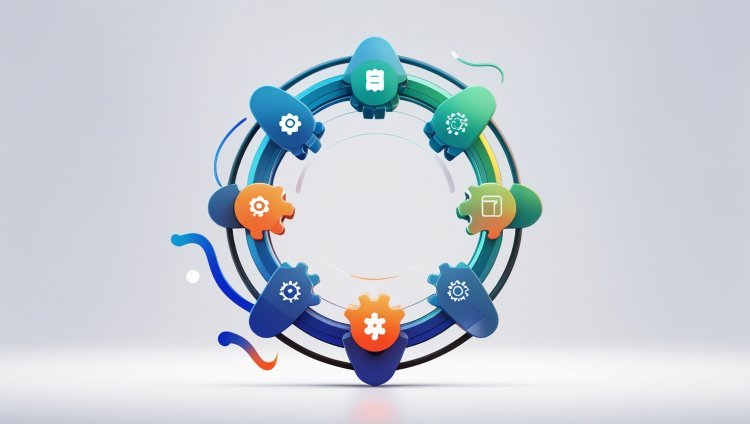7 Mobile App Development Trends in 2025
Stay ahead in the mobile app industry! Discover the 7 biggest mobile app development trends of 2025, including AI, 5G, super apps, AR/VR, blockchain, IoT, and cross-platform development.

Mobile app development services is evolving at lightning speed. What seemed futuristic a few years ago is now a reality, and businesses that fail to keep up with the latest trends risk falling behind. In 2025, several groundbreaking advancements will shape how apps are built, optimized, and experienced.
From AI-driven automation to 5G-powered applications, these trends are set to redefine user expectations and business strategies. In this article, we’ll explore seven mobile app development trends you simply can't afford to ignore in 2025. Whether you're a developer, business owner, or tech enthusiast, understanding these innovations will help you stay ahead of the curve.
1. AI and Machine Learning Integration
Artificial Intelligence (AI) and Machine Learning (ML) are no longer just buzzwords; they are revolutionizing mobile app experiences. With AI-powered chatbots, virtual assistants, and personalized recommendations, apps are becoming smarter and more intuitive.
How AI is Reshaping Mobile Apps
- Personalization: AI analyzes user behavior to provide customized content and recommendations (e.g., Netflix, Spotify).
- Automation: Businesses are using AI chatbots for customer support, reducing operational costs.
- Predictive Analytics: AI can forecast user preferences and suggest relevant products or services (e.g., Amazon, eBay).
Examples of AI-Driven Apps
- Google Assistant & Siri: Voice-controlled AI assistants
- ChatGPT & AI Chatbots: Conversational AI for customer interactions
- FaceApp & Prisma: AI-powered image editing and filters
Future Scope of AI in Mobile Development
By 2025, AI will become even more advanced, integrating real-time language translation, voice recognition, and AI-driven cybersecurity. Mobile apps that leverage AI will dominate industries like eCommerce, healthcare, and finance.
2. 5G Technology and Its Impact
With the global rollout of 5G networks, mobile apps are set to experience unprecedented speed, ultra-low latency, and improved connectivity.
How 5G Enhances Mobile Apps
- Faster Download & Upload Speeds: Streaming apps like Netflix and YouTube will offer seamless 4K and 8K video experiences.
- Reduced Latency: Essential for real-time applications like gaming, video conferencing, and autonomous vehicles.
- Better Connectivity: Supports AR/VR, IoT, and smart city applications without lags.
Industries Benefiting from 5G
- Gaming: Cloud gaming platforms like Google Stadia will thrive.
- Healthcare: Remote surgeries and real-time health monitoring will become more reliable.
- Automotive: Autonomous vehicles will communicate in real time for enhanced safety.
By embracing 5G technology, businesses can enhance user experience, reduce buffering times, and unlock new possibilities for innovation.
3. Rise of Super Apps
Super apps are multi-functional applications that offer various services (messaging, shopping, payments, food delivery, and more) all in one platform.
Why Are Super Apps Gaining Popularity?
- Convenience: Users don’t need multiple apps for different services.
- Data-Driven Insights: Businesses can leverage user data for better marketing and service delivery.
- Increased Engagement: Users spend more time on a single app rather than switching between multiple apps.
Successful Examples of Super Apps
- WeChat (China): Combines messaging, social media, eCommerce, and payment services.
- Gojek (Indonesia): Offers ride-hailing, payments, food delivery, and logistics in one app.
- Paytm (India): From mobile payments to shopping and ticket booking.
How Businesses Can Leverage the Super App Model
By integrating multiple services within a single app, companies can increase customer retention, improve user engagement, and boost revenue streams. Expect more businesses to adopt the super app model in 2025.
4. Augmented Reality (AR) and Virtual Reality (VR) Advancements
Augmented Reality (AR) and Virtual Reality (VR) are transforming gaming, eCommerce, healthcare, and education developing with react native alternatives.
Growth of AR and VR in Mobile Applications
- Gaming: Pokémon GO revolutionized AR gaming, and now we have more advanced AR/VR games.
- eCommerce: Apps like IKEA Place allow users to visualize furniture in their homes before buying.
- Healthcare: VR-powered therapy and remote surgeries are improving medical treatments.
- Education: AR apps make learning more immersive and interactive.
Future Possibilities with AR/VR Integration
By 2025, AR and VR will play a crucial role in metaverse applications, virtual meetings, and immersive training simulations. Businesses that incorporate AR/VR into their apps will enhance user engagement and boost sales.
What's Your Reaction?













